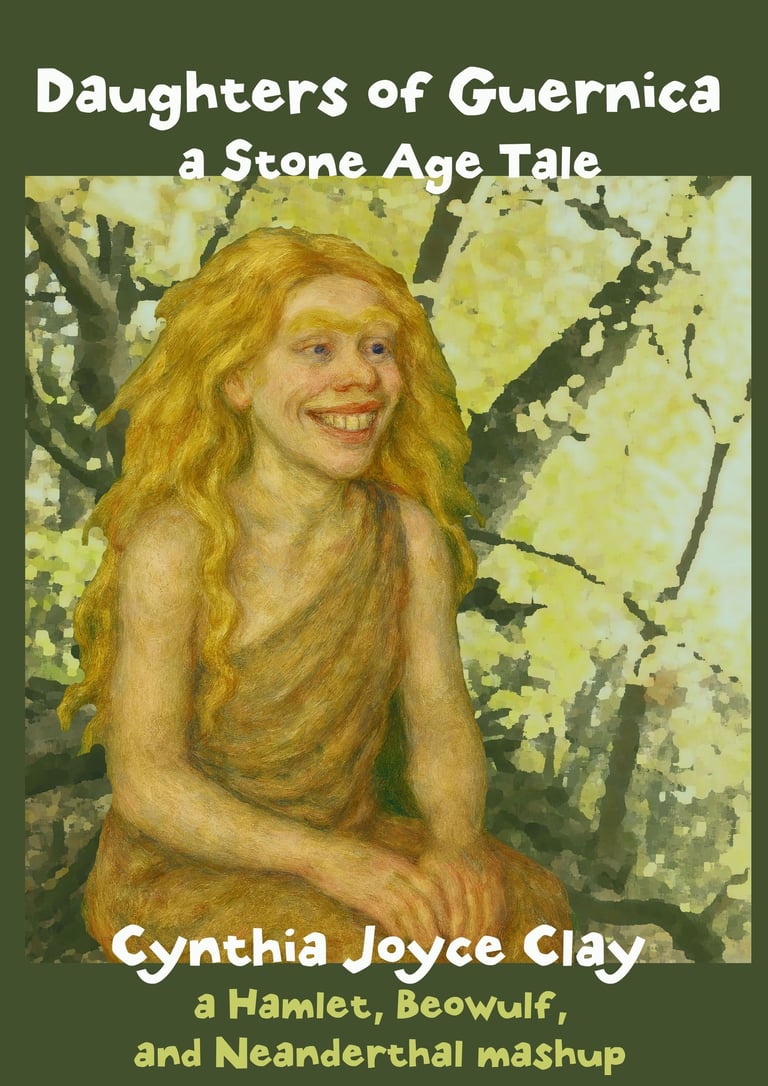

E-book, audiobook, paperback, and hardcover available Oct. 30, 2025! Please post a review!
A Hamlet, Beowulf, and Neanderthal mashup!
Thousands of years ago, at the famed Salamanca Grotto of the Wise, Amets was enjoying the life of a perpetual student until a banshee keened the death of her father. Upon her return home to Guernica, Amets found that her uncle, Gorri, had murdered her father and married her mother. Not only that, but Uncle Gorri was taking advantage of Neanderthal attacks by killing people who crossed him and claiming the Neanderthals did it. What Amets didn't know was that Uncle Gorri had imprisoned a Neanderthal woman, Herti, nor did Amets know that Herti held a special grudge against her because Amets’ father had killed Herti’s parents. Actually, Amets’ father had only killed Herti’s father, but Herti tended to inflate injustices against her. Amets' aunt forbade her younger son Lertxun, whom she did not love, from romancing Amets because she wanted her elder son, whom she did love, to marry Amets since Amets was the heir of the Guernica Family. Herti had her eye on Lertxun, which gave her yet another reason to want to kill Amets....
Compulsion Reads: “Foreshadow is a beautifully written fantasy tale that wraps readers in poetry, new mythology and magic. ...If this is the precursor for things to come in the series, we are in for quite an adventure.”
Kirkus Reviews: "...magic and dragons are commonplace, gods and goddesses take an active role in the lives of mortals, and poets are high-ranking, powerful individuals...A large, colorful cast of royal household members and royal subjects add both humor and drama to Tristabe-airta's tale..."
Royal swords possess the unhuman strength and temperament of their ancestors, dragons. Burta, a young royal sword, resents that she must always defer to Tristabé-airta, Princess Royal of Allsongs, a poet. But Burta is so skilled in arms she expects to win the Allsongs’ Contending and that will make her Tristabé-airta’s liege. The problem is, though, she is trapped between the monster that hunts her and the deadly drop down the cliff to the turbulent sea. In Book Two of the Saga of the Dragon Born, all the poets of Allsongs, including Tristabé-airta, must unite their power to rescue Burta. Once rescued, will she unwisely keep a secret close to her heart that will be a rending betrayal to Allsongs’ best hope and defense, Tristabé-airta?
In this third book, Banished, Tristabé-airta, banished from her father’s kingdom of Allsongs, must find a mentor so that she can advance in her training in magic. But no one wants to teach a miscreant, especially one who pulled from the ocean ten waterspouts and destroyed a village with them. On the road alone and prey to griffons, ruffians, and a frightening god who lusts for her, Tristabé-airta must find a way to improve her control over her magic.
And Allsongs? Allsongs must prepare for a truly terrible winter, having banished the one person with the magical ability to right the weather–Tristabé-airta.
In this the fourth and final book, Allsongs, Tristabé-airta must face the curse that was set upon her in her infancy–she must offer herself to a dragon’s fire. Before she faces the dragon, she must finish her training in magic and arms to fight the monsters escaping The Direlands and the dragon which is preying on dragon eggs and human families. Even if she accomplishes all this, Prince Mickrsoss, Heir of Allsongs, her former lover, has dreamed Tristabé-airta will return to wrest Allsongs from him for his choosing another for his bride. If Tristabé-airta dares challenge him in battle for Allsongs, he will fight her to the death. Although Tristabé-airta is prophesized to be Allsongs best defense, Mickross has dreamed true…
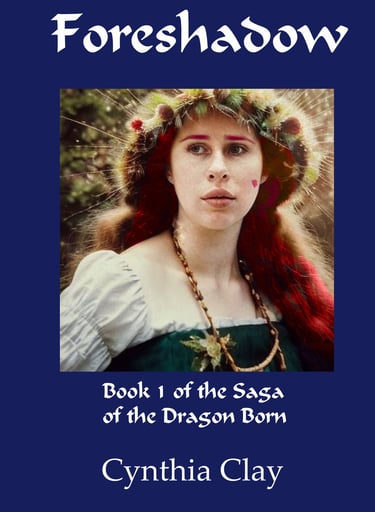

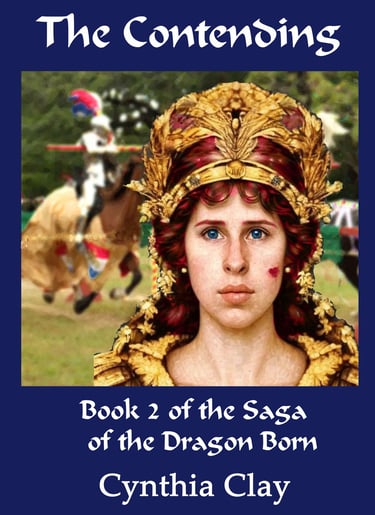

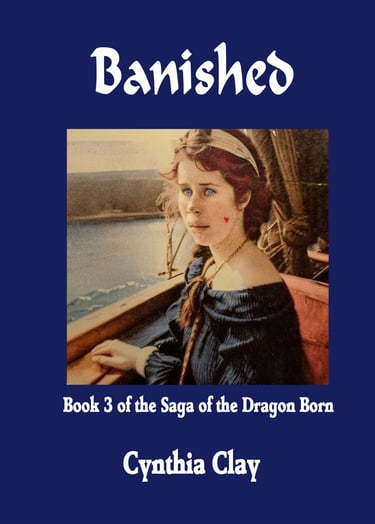

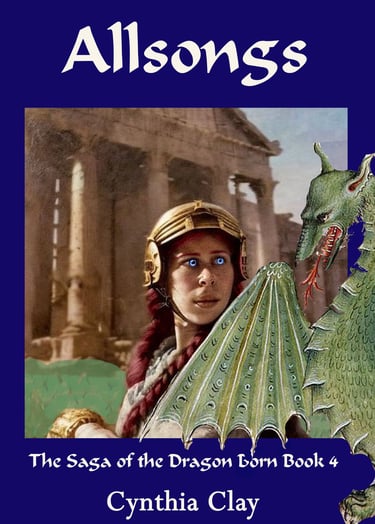

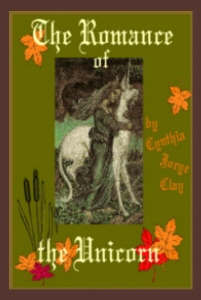

Rochelle Weber,Roses and Thorns Reviews
"The Romance of the Unicorn is a marvelous ride on a flying carpet through a magical world of wise women, gallant men, and magical creatures. It carried me away from my humdrum world with its suspenseful quest and gentle humor. I loved the strength of the women in this world and the balanced relationships between the genders. It is a fairy tale for our time."
Amazon Reviewer: "Cynthia Joyce Clay's The Romance of the Unicorn is a wonderful fantasy. When Elayne's cat is turned into a troll, she buys it clothes and tries to get a diaper on it. This was very funny. When Elayne is shown suffering, she instantly agrees to help. Elayne is not given to falling into emotional fits. She reacts practically to extreme situations--a funny switch on the New Age ditz characters. I also enjoyed Clay's sense of what technologies could have been developed in other histories. For instance, a toilet is very simple; there is no reason an iron age culture could not have invented them and used them like we do. After all, the ancient Greeks had 'vomitoriums.' "
Further, many fantasy stories do not mention beliefs of the afterlife,, Clay does this well. The characters believe in reincarnation, this belief is acted upon for problem solving in the story. Finally the story is romantic. Although Elayne was dumped by her boyfriend. Yet, a villain in the magical world echoes him, giving Elayne reason to get over him. Riding a unicorn, the hero rescues Elayne, starting a love affair. This is a very funny, intriguing, at times sad, and exciting story.
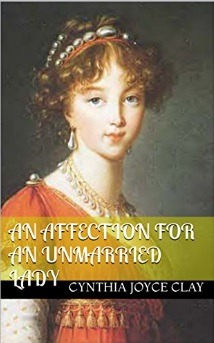

Review Tales, Review by Jeyran Main
Cynthia Joyce Clay’s An Affection for an Unmarried Lady is a masterful homage to the Regency romance tradition, infused with clever twists, layered emotional entanglements, and a vivid sense of time and place. With elegant prose and a deep understanding of aristocratic mores, Clay constructs a richly populated world of family legacies, secret fortunes, whispered scandals, and hard-won affections. (Continue Reading!)
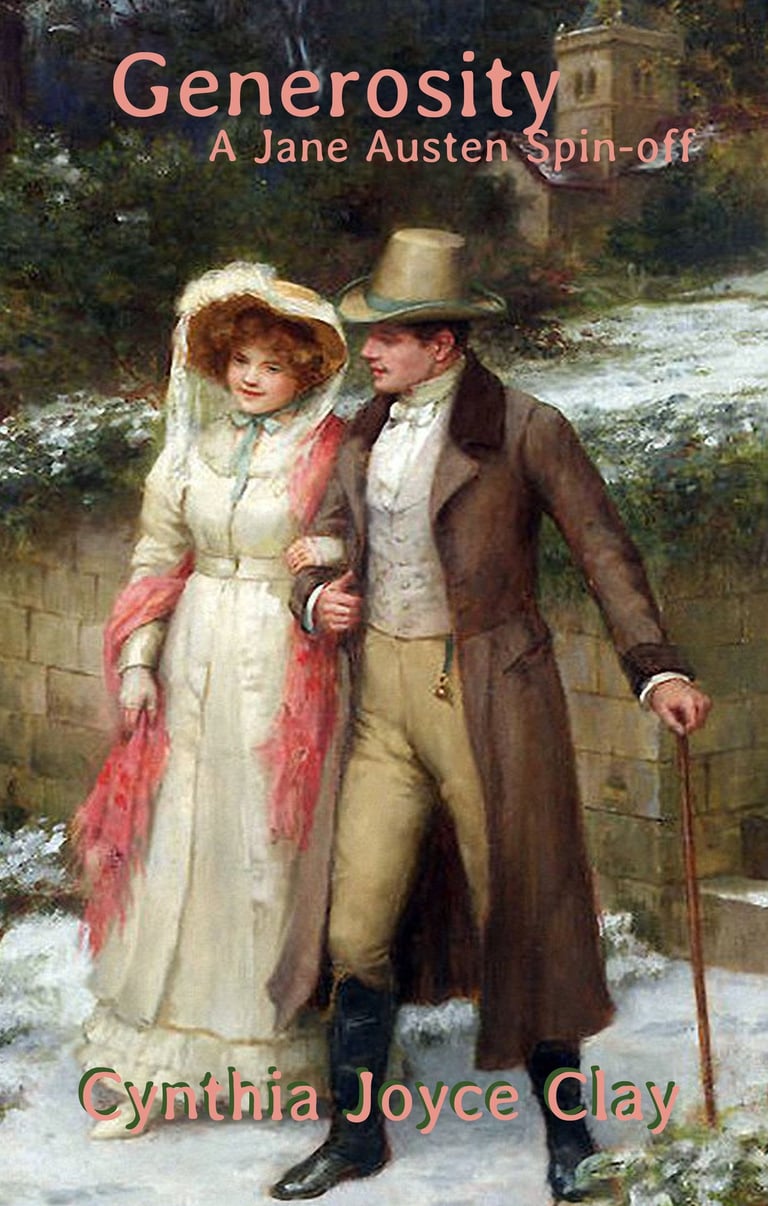

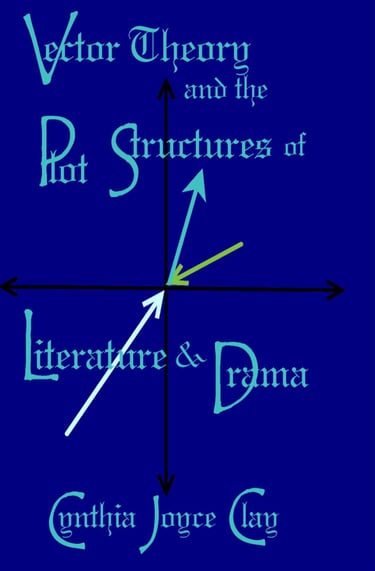

Susan Tuttle, Amazon Reviewer
"This book [Vector Theory and the Structures of Literature and Drama] should be the basic textbook in all literature/journalism/drama programs and appreciation courses, both for the reader/viewer and the writer. Ms. Clay's revolutionary insights into what makes a story interesting and memorable encompass all formats and genres, leaving nothing to chance. And even if the reader does not have a grounding in science (like this reviewer), the logic of Clay's arguments is inescapable. Meticulously researched, with example after example from both drama and literature, this book is not a one-time read; new insights and "aha's" arrive with each rereading. A note of caution: this might seem like a "small" book, but Clay has packed an immense amount into each page. I found it helpful not to try to analyze what I was reading, but rather to allow it to wash over me and let osmosis begin absorbing the deeper meanings into my psyche. It must have worked: after reading Vector Theory the first time, I was able easily to understand why two novels and one movie were not satisfying experiences - which in itself brought me satisfaction of a sort. And I have a deeper understanding now of the interconnectedness of all life's events to bring to my own work. Kudos to Cynthia Clay for bringing what is, for most of us, intrinsic knowledge into the light of day. This is one book you'll never be sorry you read!"
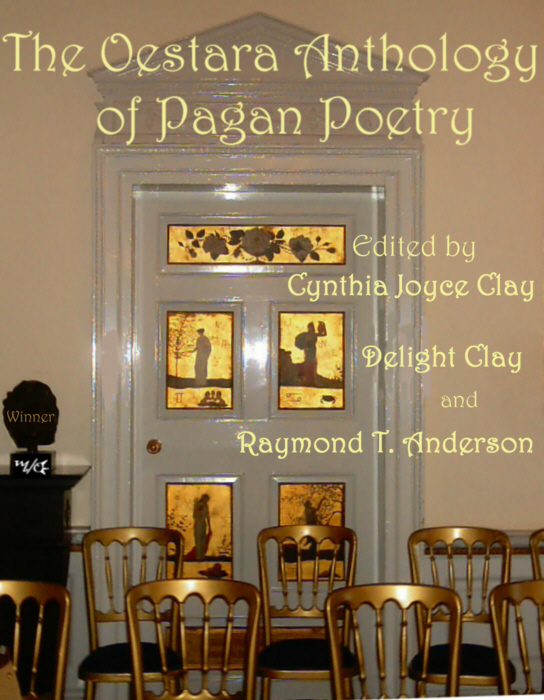

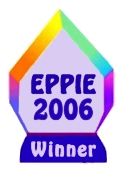

Professor Ronald Hutton's Review: The Oestara Anthology of Pagon Poetry.
The Triumph of the Moon: A History of Modern Pagan Witchcraft
Bristol University,
Leading historian on Paganism